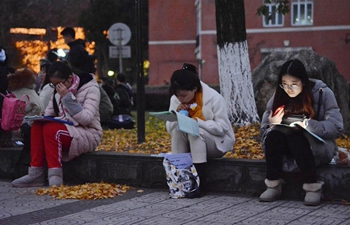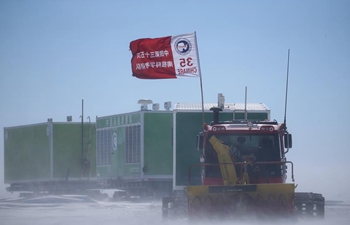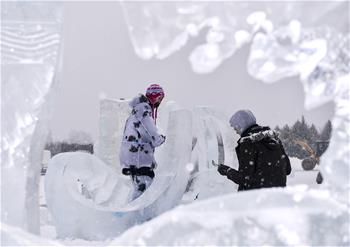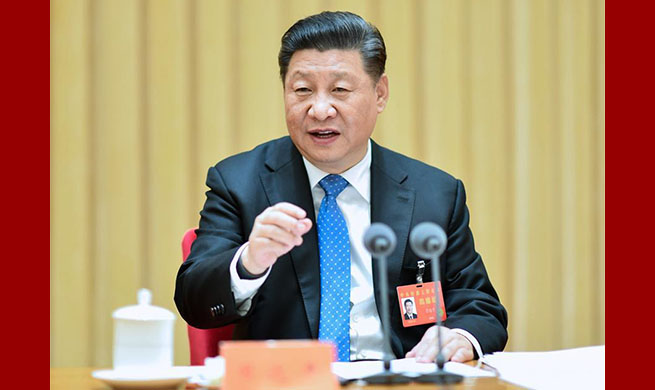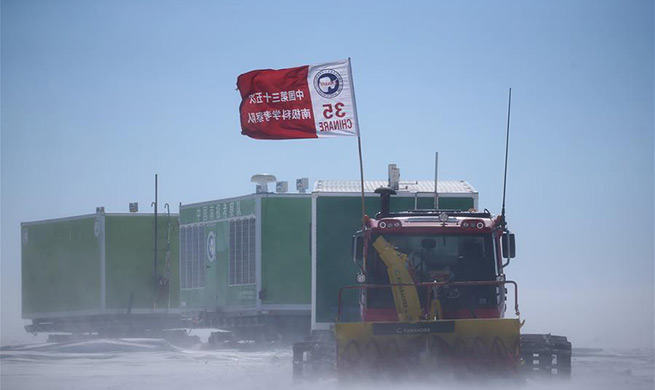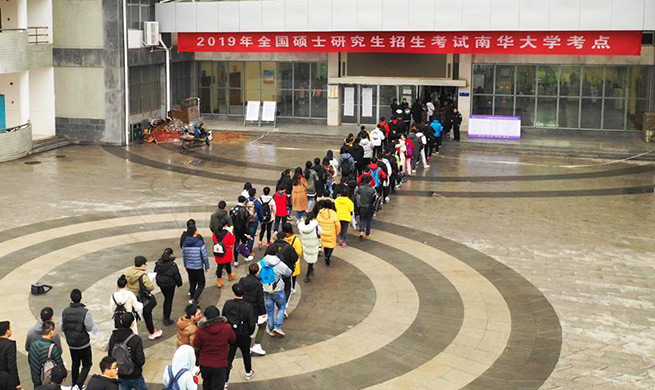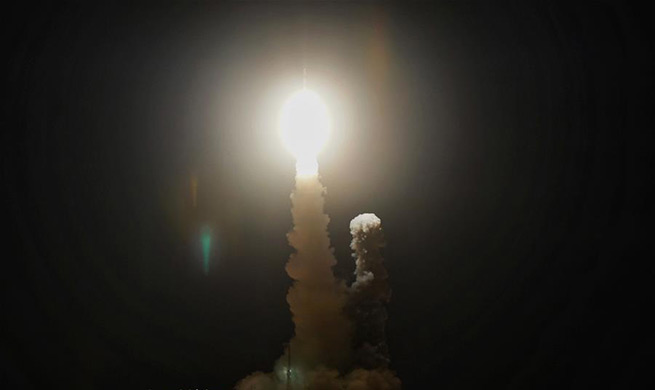ISTANBUL, Dec. 22 (Xinhua) -- Turkey's postponement of a planned military operation against U.S.-backed Kurdish militia following Washington's sudden decision to withdraw troops from Syria suggests that Ankara opts to be cautious due to uncertainties on the ground, analysts told Xinhua.
"Turkey has put the operation on hold as the situation lacks clarity," said Hasan Koni, an analyst on international relations with Istanbul Kultur University.
Turkish President Recep Tayyip Erdogan said on Friday that Ankara had decided to postpone the offensive due to developments related to Syria.
The U.S. decision to leave Syria came as a big surprise on Wednesday as the U.S. media was full of reports about the White House's plan to bring all troops back home from war-torn Syria.
"We have started returning United States troops home as we transit to the next phase of this campaign," White House Press Secretary Sarah Sanders said.
The U.S. move came after Erdogan threatened last week to launch "within days" an offensive to eliminate the Kurdish militia in northeastern Syria.
Ankara appears to have doubts about the situation in Syria following Washington's sudden decision to withdraw troops, stated Koni.
"The situation raises concerns that all this may be part of a U.S. scenario in which Turkey would also have a role in Syria," observed Cahit Armagan Dilek, director of the Ankara-based 21st Century Turkey Institute.
U.S. President Donald Trump defended his decision in a Twitter message earlier Wednesday, saying "we have defeated IS (Islamic State) in Syria, my only reason for being there during the Trump Presidency."
Erdogan revealed that Turkey's operation, which would not only target the Kurdish militia on Turkey's border, but also the IS in Syria, would be launched in the coming months.
Ankara sees the presence of the Kurdish militia, known as the People's Protection Units (YPG), along its border as an existential threat, and has long been angry at Washington for arming it.
The U.S. should not be expected to withdraw all its troops nor allow Ankara to attack the Kurdish militia, argued Dilek, a former staff officer in the Turkish military.
In his view, Washington's plan is to prevent Ankara from eliminating the YPG while placing the IS as a target for Turkey.
During the Syrian war, the YPG, which Washington used as a ground force against the IS, has carved out two self-declared autonomous cantons east of the Euphrates River and an autonomous administration in Manbij, a Syrian town on the western bank of the river.
The U.S. withdrawal process, expected to last 30-100 days, will be discussed in a meeting in Washington D.C. on Jan. 8, Turkish Foreign Minister Mevlut Cavusoglu said on Friday.
It is widely argued that the U.S. decided to pull out troops in order not to lose Turkey as an ally, as a Turkish offensive against the YPG risks confrontation with U.S. troops.
The U.S. move risks creating divergences among Turkey, Russia and Iran, Ankara's two partners in the so-called Astana process seeking to settle politically the Syrian conflict.
Ankara may have thought that a military intervention into Syria would negatively affect its relations with Russia and Iran, remarked Koni.
A Turkish operation into Syria, whether it targets the YPG or the IS, could lead to a deterioration in ties with Russia and Iran, Dilek stated, noting neither Damascus nor Moscow nor Tehran would want Turkey to enter into Syrian territory.
Iran said on Monday that no country should carry out military operations on Syrian territory without the permission of Damascus, warning of problems in the Astana process in case of any violation of this principle.
"Russia hoped to pull Turkey away from Washington when it allowed Ankara to play a major role in the Idlib case. The rapprochement between Turkey and the U.S. is sure to annoy Russia," said Dilek.
Under Ankara's pressure, Moscow agreed in September to resolve the problem in Idlib, the last major bastion for Islamist rebels in Syria, through talks rather than force.
A Turkish military operation against the YPG and IS would extend Ankara's control over Syrian territory to the northeastern and eastern parts, an anathema to Damascus, Tehran and possibly Moscow.
Despite protests by Damascus, the Turkish military has captured al-Bab and Afrin regions from the IS and the YPG respectively in the past years.
Dilek feels that Washington plans to replace the YPG militia with Peshmerga fighters from the federal region of Iraqi Kurdistan and Arab militias along the Turkish border to create a buffer zone between the Turkish army and the Syrian Kurdish forces.
According to press reports, nearly 100 Syrian Peshmerga fighters from Iraq had arrived at YPG-held territory under a U.S. plan.
The reports said these fighters, who had to leave Syria under YPG pressure due to ideological divergences during the war, were to be deployed along the Turkish border.
However, local media reported on Wednesday that the Peshmerga fighters were sent back, possibly due to disagreements, to Iraqi Kurdistan by the YPG, although it has not been confirmed.
The Turkish government has often said that it would not tolerate the YPG along its border, but Ankara has no feelings of hostility toward Syrian Kurds and Arabs who are not linked to the Syrian Kurdish militia.
Ankara sees the YPG as the Syrian branch of the outlawed Kurdistan Workers' Party which has been fighting against the Turkish state for more than three decades.
Koni feels the YPG may now feel compelled to seek the support of the Syrian government against a potential Turkish operation.
The YPG is having talks with the Syrian government, according to press reports.
The reports claimed that the YPG is ready, in return for Damascus' help to fend off a Turkish incursion, to give up Kurdish autonomy and settle instead for a decentralized democratic government in which Kurds are granted some powers.
"The YPG has to settle for a sort of cultural autonomy and seek the help of the Syrian army. Otherwise, it has no chance of resisting a Turkish offensive," remarked Koni.


